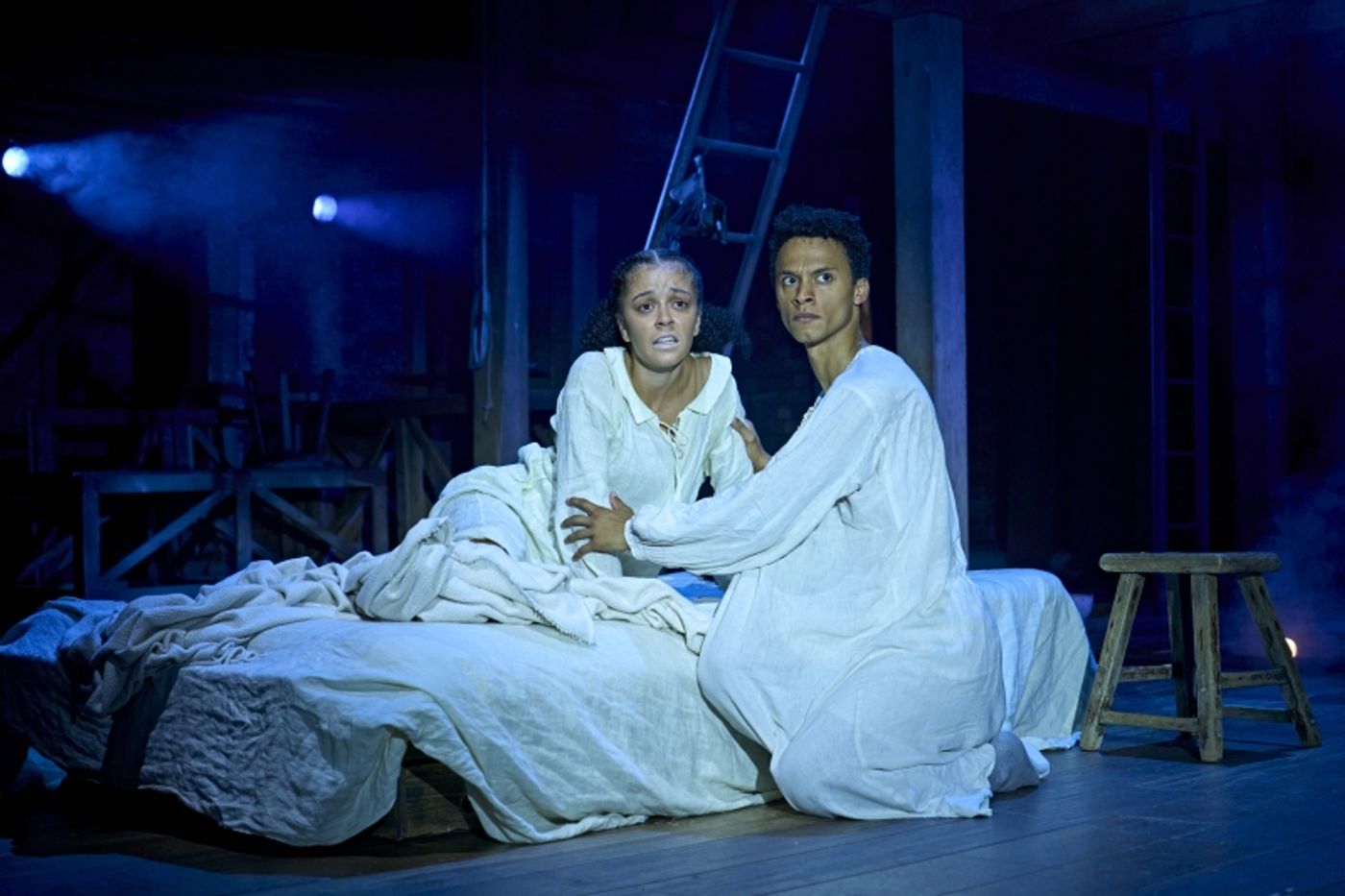Review: HAMNET, Garrick Theatre
Lolita Chakrabarti's adaptation of Maggie O’Farrell’s bestseller transfers to the West End.

![]() Hamnet Shakespeare was only 11 when he died. The cause is unknown, but it’s believed that it might have been an early case of plague in the village. His father, one of the most famous men of his time, was busy writing for the theatre in London and it’s unsure whether he was able to attend his own son’s funeral. It’s theorised that Shakespeare’s relationship with Hamnet inspired and hugely influenced his work after his passing, namely in, of course, Hamlet. The whole story is truly fascinating.
Hamnet Shakespeare was only 11 when he died. The cause is unknown, but it’s believed that it might have been an early case of plague in the village. His father, one of the most famous men of his time, was busy writing for the theatre in London and it’s unsure whether he was able to attend his own son’s funeral. It’s theorised that Shakespeare’s relationship with Hamnet inspired and hugely influenced his work after his passing, namely in, of course, Hamlet. The whole story is truly fascinating.
Maggie O’Farrell’s novel Hamnet explores grief and loss through the lens of Elizabethan society, reimagining the family life of the most celebrated playwright in England. The book has swiftly become a fan-favourite among readers and thespians, so it was only natural that a stage adaptation followed suit. Lolita Chakrabarti’s play enjoyed a fairly successful run in Stratford-upon-Avon and immediately promised a West End transfer. Under Erica Whyman, the production is a good-looking exercise in speculative history.
Although striking in visuals and direction, it has a weak linear script and a curious tendency to amble between hyper-romanticism and melodrama. The unnerving lack of chemistry between the couple doesn’t help its cause (but more on this later). While the dialogue is infused with raw poetry and displays some intense moments (with William especially, sensibly), it showcases a list of chronological events without digging into their significance or using them to explore its characters thoroughly - unlike the book. Themes like parental cruelty, malicious rumours, domestic violence are thrown in the mix, increasing the flavour but hardly making a difference.
It’s a delightful project with plenty of opportunities for reflection, but it largely lacks the emotive substance of the original material. The plot points are re-enacted beautifully, with Whyman’s precise vision and Tom Piper’s set turning into the main event. A wooden scene sits heavy on the Garrick stage: beams shoots up from the flooring and earthy tones envelop the drama from start to end. An upper floor and the A-line structure of the Shakespeares’ home add dynamism and allow for an interesting visual frame; ladders move, portcullises descend, and the space suddenly shapeshifts into the form it keeps suggesting - the Globe. It’s a beautiful design.
Whyman toys with tradition, offering a visceral take on the narrative themes. Breathless whispers and choked breaths accompany the tale, adding a haunting vibe and shifting its charm to a darker tone. Quick changes in Prema Mehta’s lighting design isolates certain actors and split the action into timelines or displace them to various locations, giving a modern spin to the stagecraft.
The fairly large company is helmed by Madeleine Mantock as Agnes Hathaway, who's better known these days as Anne. Quirkier and slightly more witchy on stage than she is in the book, her romance with William is rushed and devoid of much of O’Farrell’s aura. Chakrabarti leans into the accusations of witchcraft and runs with them, transforming her into somewhat of a hippie druid. It works, but feels a bit far-fetched. Tom Varey turns from young William to veteran wordsmith Mr Shakespeare offstage, he starts as an eccentric artist who clashes with his father and becomes a distant breadwinner.
Though it comes in quite late, the highlight of their relationship and an element we wish was investigated more thoroughly is the distinct ways they process the loss of their child. Agnes wails and falls into a paralysing depression; Will shuts down and leaves for London to bury his head in his work. Neither understands the other. It’s unfortunate that there isn’t enough dwelling on the issue, and the divide that nearly broke their marriage is breached in a delicate swoop of theatrical magic.
While the first act is a bit Shakespeare in Love-ish, the “how Will became Shakespeare” vein gives space to the heightened sorrows of bereavement and emotional distance. Hamnet’s death is horrifying, as is his twin Judith’s survivor’s guilt. Alex Jarrett (Judith) and Ajani Cabey’s (Hamnet) bond is unmatched in chemistry, beating their characters’ own parents at showing affection. Even though they remain on the sidelines for most of the show, Jarrett and Cabey become plot devices in their own right, moving the story forward flawlessly.
All in all, it’s a respectable piece of theatre on many levels, but a far cry from O’Farrell’s intricate web of feelings and historical facts. It’s a lovely adaptation, but it won’t exactly quench the thirst of the superfans.
Hamnet runs at the Garrick Theatre until 17 February 2024.
Photo credit: Manuel Harlan
Read our interview with Madeleine Mantock on playing Agnes Hathaway here.
Reader Reviews
Powered by
|
Videos


%2C%20Madeleine%20Mantock%20(Agnes%20Hathaway)_%20Credit%20Manuel%20Harlan.jpg?format=auto&width=1400)
